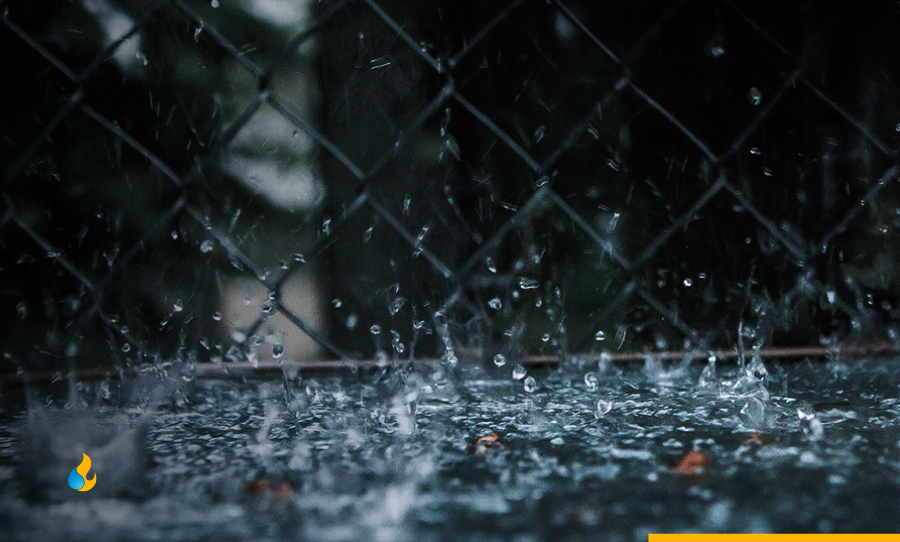
Give your gutter a helping hand with our picks for the best gutter guards in 2022
Cleaning the gutter from leaves, twigs, debris, and mud can be really annoying, especially when they can cause some major problems such as clogging that results in you calling an expert (like us) to fix the problem. Although we’d love to help you out, we can also give you some great tips on how to keep your gutters as clean.
Types of gutter guards
Each with their set of pros and cons, there are five main types of gutter guards that you can easily find out there.These include screen, micro-mesh, reverse curve/surface tension, brush, and foam.
Screen
Featuring a wire or a plastic grid the screens block leaves from entering the gutters. They’re pretty easy to install without any extra tools. Just lift up the bottom row of roof shingles and slide the edges of the gutter screens beneath the shingles along the entire length of the guttering. Therefore allowing the weight of the shingles to hold the screen in place.
Something also to consider with the screen option is that since screens are not screwed down, they may be dislodged by high winds or knocked out from under shingles by falling branches.
Also something to take note of when choosing the screen option is that prying up the lower row of roof shingles to install them could void some roof warranties.
Micro-Mesh
Like screens, micro-mesh guards let the water run through small holes while blocking the dirt and foliage. They can be installed with one of three simple methods, slipping the edge under the first row of roof shingles, snapping the guard directly onto the gutter’s top, or attaching a flange to the vertical strip above the top of the gutter.
The best thing about micro-mesh is that they can effectively block even bits of debris, such as blowing sand, while still allowing rain to flow through. They can be made of different materials, from inexpensive plastic to robust stainless steel.
Another difference between the micro-mesh options and other gutter guards is that these may need occasional cleaning with a high pressure hose from time to time to clear ultrafine debris from the mesh holes.
Reverse Curve
Reverse-curve guards are made from lightweight metal or molded plastic, letting water flow over the top and around a downward curve before dropping into the gutter beneath, with leaves and debris sliding right off the edge and falling to the ground below.
These cost more than mesh guards and screen options, and they are also less DIY-friendly than other gutter guards. They also need a proper installation, or the water can run over the edge, not following the reverse curve into the gutter. As they are installed above the existing guttering, they appear like full gutter covers from the ground, so the best would be to look for a product that matches the colour and aesthetic of your home.
Brush
This type of guard is essentially an oversized pipe cleaner that rests inside the gutter, preventing large debris from falling into it and causing clogs. Simply cut the brush to the right length and slide it into the gutter. Thanks to how easy it is to install and its affordability, it is a popular option for DIYers on a budget.
Brush guards are usually made of a thick metal wire center with polypropylene bristles extending from the core. The guards don’t need screws or connections to the rain gutters, and the flexibility of the metal wire core allows it to be bent to fit around corners or stormwater drainage systems with an unusual shape.
Foam
This easy-to-use triangular foam sits in the gutter with one side lying to the back, another facing up to the top to prevent debris from getting in, and the third side fitting diagonally in the gutter, allowing water and small debris to flow through the drainage system.
These foam guards are pocket-friendly and easy to install. The foam can be cut as needed, and they don’t require nails or screws to remain in place. However, they aren’t the best for homes that experience high precipitation because heavy rain can quickly saturate the foam, overflowing the gutters.
Things to keep in mind when picking your gutter guards
It’s important to think about the materials of the guard you pick. Some are more resistant, hence a bit more pricey than others, like stainless steel, while you can also get aluminum and plastic that are less expensive and can still last quite a bit. As for the foam, although it is durable and inexpensive, remember that it can get moldy.
Remember to measure the width of the gutter’s top from the inside to the outside edge before buying the gutter guard. While guards come in lengths from 3 to 8 feet, gutters come in three standard widths from 4-inch to 6-inch, with 5-inch being the most common.
For anything higher than a first-story roof, it would be best to get professional help with installation. Especially if you want to make sure everything fits and works perfectly.
Here are the top 8 Best Gutter Guards of 2022
LeafFilter: Best Professional Installation Process
HomeCraft: Best Design
All American Gutter Protection: Most Customizable
A-M Gutter Guard: Best Screen and least noticeable
Raptor: Best Micro-Mesh and best overall
GutterStuff: Best Foam
Amerimax Home Products: Best Mesh and easiest to install
GutterBrush: Best Brush





0 Comments